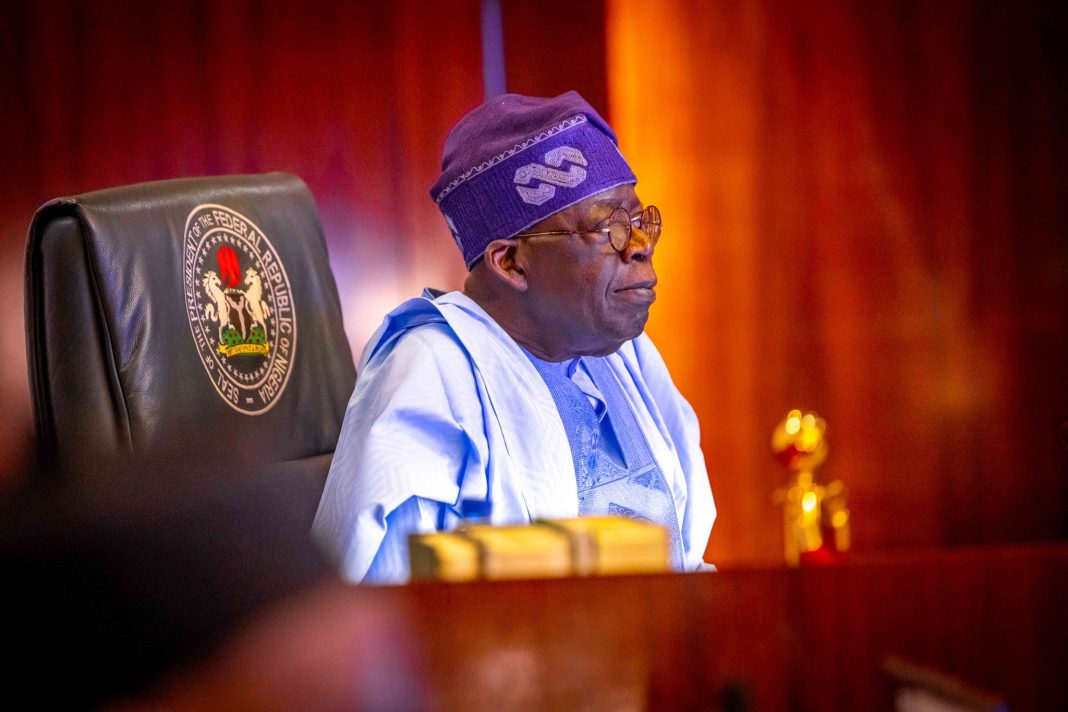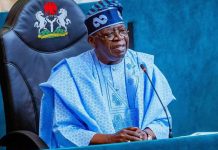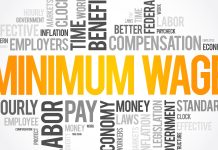The other day President Bola Tinubu announced that Nigerians are going through the equivalent of childbirth pains, but his administration is determined to ameliorate the pains, provide succor and make life better for all. During his Presidential campaigns, he told Nigerians – emi lo kan, that is in Yoruba – “it is my turn”. He also told us “e lo fokan bale”, that is don’t worry, I would be there for you as he explained that phrase. He, practically, spiritually wished himself into power and has since his assumption of office with all the baggage about unresolved court matters, confronted, through proxies, big challenges from the People’s Democratic Party and the Labour Party (LP).
What we see is that the President has continued to play “Rose Garden politics”, grab the power, hold it, and be seen to be taking charge and be seen also to be doing so, even as the opposition continues to raise questions of legitimacy. It is the courts that would determine that, eventually, but more than any other time in Nigerian history, the judex is in the eyes of the storm, exposed to the most excruciating scrutiny. Indeed, the judiciary in spite of itself has been dragged right to the bottom of the arena, in what when reviewed would come across, as one of the most difficult moments in the history and trajectory of the Nigerian judiciary. Our Lordships are in a difficult place. They carry a burden to do justice, and they also have to be seen to be doing so. They are faced with a political arena where expectations about risks and outcomes are the subjects of confrontation. The judex are expected to be above board at all times and to dispense justice without minding whose ox is gored. The more liberal characters in this conversation claim that they are looking for justice, and that justice is the “be-all-and end-all” of the judicial process. But. really, what is justice? Pontius Pilate sked “what is truth? And I wager a bet that the present imbroglio over the 2023 Presidential elections would not be resolved on the basis of questions of legitimacy, but law, public policy and public interest. I stand to be corrected if the pendulum swings otherwise.
This piece however is not necessarily about Tinubunomics, stricto senso, as the title indicates. It is about what I consider the satirical sides of the same phenomenon. Abroad, out there are the details that Nigeria’s inflation rate is now 22.79%. Fitch, an international rating agency tells us that we should in fact be looking at 25.1% in due course, and that real GDP growth is likely to slow down to 2.7% in the face of high living costs. Debt service to revenue ratio is about 97%, so high that members of the Afenifere, a socio-cultural group, have also now become emergency economists- much better than stoking the fires of ethnic difference- and are now offering economic counsel about how to eliminate debt and increase productivity, growth and values. Meanwhile, the Monetary Policy Committee (MPC) has just met – the first MPC since President Bola Tinubu assumed office, the first to be presided over by Mr. Folashodun Shonubi as Acting Central Bank Governor. Monetary Policy Rate (MPR) stands at 18.5%, and this is the first MPC meeting in a long while without the embattled, suspended Governor of the Central Bank, Godwin Emefiele.
Foreign Exchange Rate is as high as N868 to the dollar in the parallel market. Jobs and productivity are negatively impacted. Money supply is at an all-time high at over N9 trillion, pressuring the FX market. What should be our expectations then, today as the MPC concludes its meeting? What is the balance of risks? Nigeria’s MPC faces a dilemma like never before now: to tighten, ease or retain? Whichever way the MPC decides today, the signs look ominous. Traditional orthodox economics has not worked here for as long as we can remember because the fundamentals of this economy are askew, the necessary alignments between fiscal and monetary policies are not in place, productivity is low, growth is abysmal. Let us leave the economic jargons to the economists. If you have two or three of them in this space, they will express different opinions, quoting dead theories lacking connection with contemporary Nigerian realities and claiming, each one of them, to be right. You are better off avoiding their voodoo and mischief. Nigerian economists are only good when they gather to pick up appointments at the Policy Advisory Committees that the Federal and State Governments often aet up or when they hold their annual peppersoup-ing and jollof-ing conferences where they write reports that are at best photocopies of statements from the IMF, the World Bank, and the rating agencies. Many of them would soon show up as government appointees at both Federal and State levels, to collect government patronage and shake heads like experts. I doubt how much of an economist anybody can be in this environment, mouthing dead theories that don’t work here! Even Afenifere, a socio-cultural group is trying to fill the void! In some states, governments have declared shorter working days as if that is the solution. The economist and their clients have failed this country.
It is therefore about time that we brought this thing out of their textbooks and face hard reality to console ourselves as the affected people. There seems to be an emergency consensus that Tinubunomics, or “Jagabanomy” as it is otherwise known, is not working, 60 days in the making and implementation. We have been told “e lo fokan ba le”- our hearts are already palpitating. Mr Bayo Onanuga and Senator Dayo Adeyeye have both appealed to us to be patient, and that after these initial pains, there would be “everlasting joy”. Which everlasting joy, please, Senator Adeyeye? Our grandchildren are destined to pay back all the money that the APC government has borrowed with all the accrued interests? Nigeria is at a point right now that if it were possible, the dead would rise and carry placards in protest! The living are docile and is that because there seems to be some silver lining to this “childbirth pain”, to borrow President Tinubu’s words, that we are all going through? Tell us.
With due respect, I take my narratives from the streets. Yes, the country is hard, people are in pains, but has anyone noticed, especially in Lagos that thanks to Tinubu, people are now likely to become the most fit population in the world. Ordinarily, Nigerians do not like to walk about. They prefer the comfort of commuting up and down, and if possible, in air-conditioned buses and cars. This is beginning to change. What I have seen in Lagos is that more and more people are beginning to trek to work or wherever they want to go. Very early morning or at any other time of the day, it is normal to see people on their feet taking the entire stretch of the bridge, or the street, making small conversation by the side and heading towards a destination that is known to them. Thus, with the removal of fuel subsidy, Bola Tinubu has turned Nigeria into one large, fitness gym! Nigeria is the trek-a-thon country that may soon enter the Guinness Book of Records. Nigerians are beating the road with their feet more than the people in South Sudan, Syria, or Afghanistan due to the cost of fuel and public transportation. In the UK, the government is considering adding a few seconds to the green man at the traffic lights to give porky Brits some time to cross the road, because most of the population is obsess and slow. In Nigeria, the people are busy trekking. In due course, Nigeria would be left with persons looking like broom sticks, and no one should be surprised if Nigerian economists tell us that such a development would be a plus for public health.
Tinubunomics has also made us very attentive. I never used to check the fuel gauge in the car. But I do now. In fact, I don’t only check the gauge, I step out of the car to monitor the gauge at the fuel station and I note down the number of litres pumped into the car. This is no longer the time in Nigeria to act as a big man at fuel stations, sitting down there like a dumb fellow checking the phone while the fuel is being sold. Many of us are now fuel station policemen. It is not safe to trust the driver. It is not safe either to trust the fuel station attendant. Often, I have been tempted to take the fuel pump and serve myself. There is a way those attendants handle the pump. It looks like they have a method of reducing your purchase. Whatever happens, once I get back into the car, I ask questions about the fuel gauge. Is it full? Is it by the middle or is it around a quarter? This is something I never bothered to double-check in the past. But having now to fill a car that ordinarily takes N16, 500 worth of fuel with over N50, 000, I guess one may be excused for becoming a fuel gauge police. President Tinubu’s fuel subsidy removal has tuned all of us into vigilantes. The only fear is that the number of persons with hypertension may be increasing without our knowing it. By the way, many car owners have abandoned their vehicles. They say driving a car is no longer a status symbol in this country. It is better to join the masses in the national trek-a-thon especially if you live around Ikeja! In Lagos, many wives and husbands who work on the island no longer go home. They stay back in the part of the city where God has put them. Tinubu has effectively separated families to teach that romantic lesson that distance makes the heart fonder. People are learning to stay where they earn their daily bread, without going up and down. We, the people are learning how to save costs.
Many husbands who are able to still go up and down have also learnt to redraw the map of their movements. What I have observed in this our Lagos is that husbands now go home early. What I know in this Lagos is that it is possible, and that has been the pattern over the years, for a husband to leave his office and go around town like a piece of smallpox affliction for hours: he stops somewhere to take isi-ewu, he goes off to an “Igbinedion joint” (If you know, you know), then he stops by at a tarmac somewhere to take a “point and kill delicacy.” Some other days, he mixes that up with a stop-over at Calabar Kitchen or any other favourite restaurant/tarmac of his choice. He burns petrol driving from one point to the other meeting up with friends, before he finally makes his way home in the evening either to hit the sack or slap, hit, punch his questioning wife or snarl at the children! Omo, that lifestyle is changing oh. Husbands now go home. They can’t afford the high cost of fuel. Tinubu may have reduced fuel subsidy but he has also introduced by stealth a national family stabilization and planning programme. Many housewives are silently praising him. Their yeye husbands are adjusting to the new economic reality and learning to come home when they should. It looks like practical economics. While the National Economic Council is talking about the possibility of increasing the national minimum wage, by the way, employers of labour in the private sector have been busy playing deaf and dumb. Have you heard any private sector employer trying to increase staff salary? They are all playing deaf and dumb, making the dire situation in which Nigerians have found themselves look like a government problem. Many husbands are now under strict control.
Major losers in the equation would include Tinubu’s allies: the National Prostitutes Association of Nigeria. In the course of the campaigns in 2022, their National Executive issued a public statement saying that they were solidly behind Tinubu, and they were standing on “his mandate”. They even promised to offer discounted services if Tinubu won. Have they? It is now appropriate to ask the Oloshos of Nigeria: How market oh? The simple answer is this: market is bad. Many years ago, as a romance journalist, I used to write a weekly column on prostitutes and brothels. I am not telling that story here, certainly not today. But what I know for a fact is that customer traffic is the oxygen of a prostitute’s life, and as a patron, you must know the best time to get a good bargain. Tinubu has ruined the market for our Nigerian and ECOWAS sisters! People are adjusting their personal budgets and the olosho has been yanked off. Side-chicks are also groaning! I am just waiting for this category of allies to write the President to remind him that they also supported him during his campaigns and that it would be unkind to deny them their own already assured palliatives that do not require National Assembly approval. They may even propose their own economic blueprint.
Please note further that with one policy move, the Jagaban has also solved the problem of traffic hold ups in Lagos and the expressways. The other day, I travelled out of Lagos, something I try to avoid if I can, because the Lagos-Ibadan Expressway is a prolonged nightmare for motorists. I was advised that the roads are freer these days and so I ventured out. To my utter shock, traffic moved, not just on the Expressway but also inside the city. By removing fuel subsidy, Tinubu has taken the additional title of Chief Traffic Controller of Nigeria. He has put an end to traffic congestion on many roads. On my way back to Lagos, the road was also free. Most of the problematic people who go about causing problems on the roads had gone home to their wives or concubines. Half of them are more or less stone-drunk anyway. Tinubu-mycin has put them where they should be.
I am aware nonetheless, to wrap it all up, that what I describe as the positive sides of Tinubunomics, or Jagbanomy may be dismissed as a threat to growth and productivity. But let’s look at it this way: since economists like to calculate the strategic value of the informal sector, I would like to know for example: how much value do prostitutes and brothels add to the Nigerian economy? Or perhaps, peppersoup joints? Needless traffic logjams? We have been told by at least two persons from the Tinubu camp: Mr Bayo Onanuga and Senator Dayo Adeyeye that we should all be patient and calm down. Sirs, Nigerians are the calmest and the most patient people in the world. We just want good governance, results and leadership. Is that too much to ask for?







